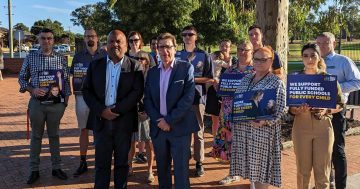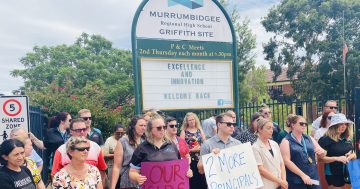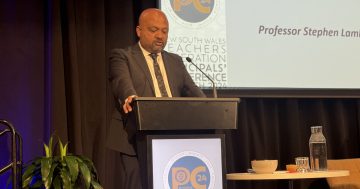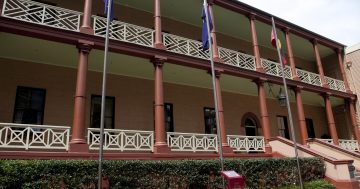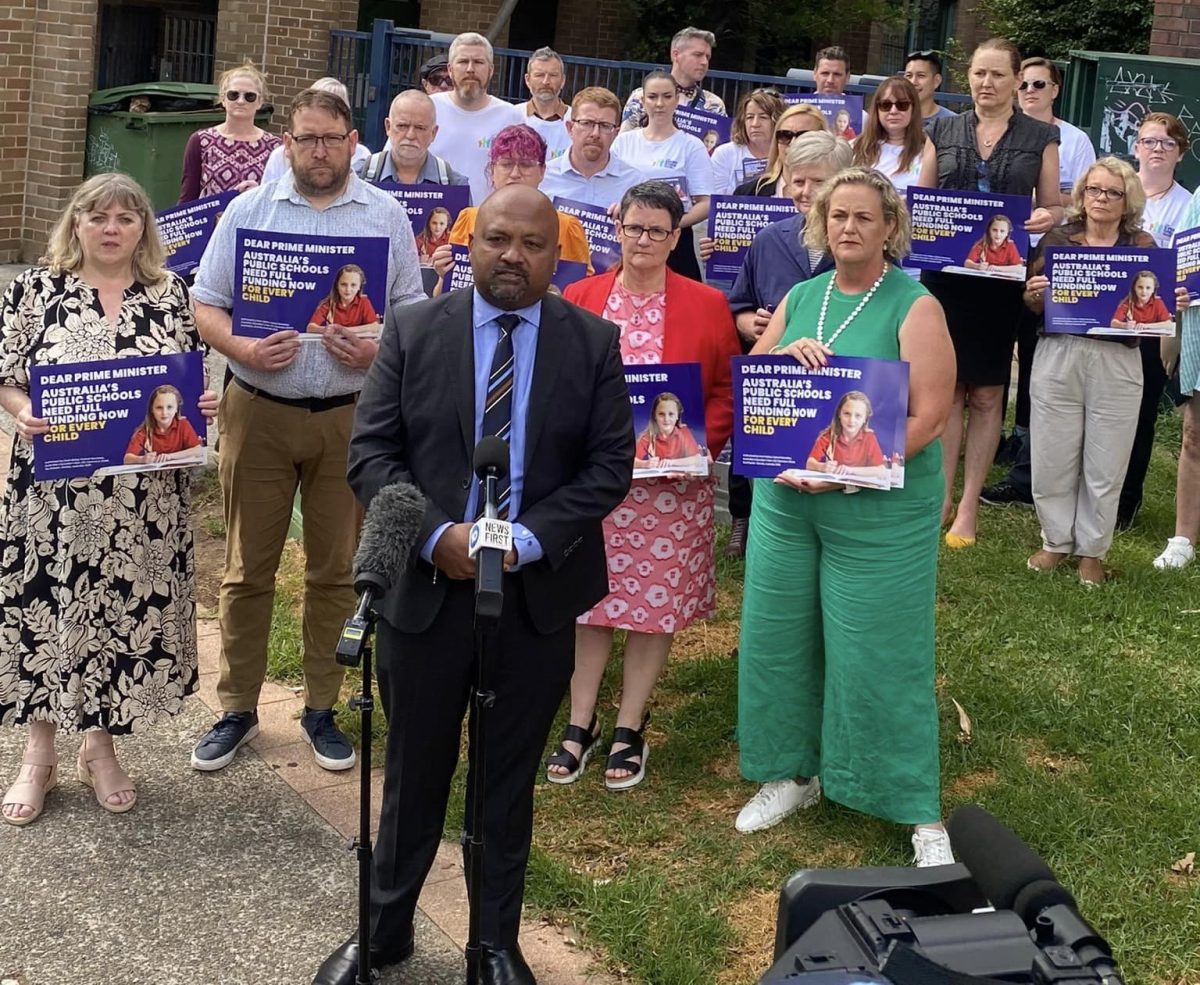
Henry Rajendra (then NSWTF Acting President) speaking to reporters about the need for full government funding to public schools in December 2023. Photo: Facebook/NSWTF.
According to recent data from the NSW Education Department, almost 2000 full-time teaching positions remain unfilled across the state. The situation has prompted the department to call on teachers who have retired or quit since 2019 to help cover the shortage, with regional and rural schools having the highest vacancies.
The figures published in the Sydney Morning Herald revealed 1050 public schools had one or more vacancies in term four of 2023, which included 759 full-time unfilled teaching positions in public primary schools and 1025 in high schools. Within public high schools, there were 202 teacher vacancies in English and maths for term four, 86 in technology, 75 in science and 75 in PDHPE.
Among the worst shortages experienced in 2023 was at Murrumbidgee Regional High, which reported up to 40 vacant teaching positions across English, maths, history, commerce, PDHPE and science.
NSW Teachers Federation (NSWTF) President Henry Rajendra said addressing the teacher shortage must be the highest priority of the Minns Government.
“The government cannot ignore the fundamental factors that have contributed to the teacher shortages,” said Mr Rajendra. “Work must continue to ensure teacher salaries are competitive and unmanageable workloads and insecure employment are addressed.
“This includes the urgent need for the Premier to deliver on his election promise to cut teachers’ admin hours.”
Mr Rajendra said the previous Coalition government failed across these areas and remained responsible for the teacher shortages across the state’s public schools.
According to Mr Rajendra, it’s up to the Minns Government to restore the attractiveness of the profession so the issue can be resolved.
On 9 October 2023, state schoolteachers received a pay rise that lifted salaries for high-end public school teachers from $113,042 to $122,100 and new graduates from $75,791 to $85,000. Yet public schools remain below the 100 per cent funding level of the Schooling Resource Standard (SRS), which Mr Rajendra said was the minimum level agreed to as necessary for meeting student needs more than a decade ago.
In December last year the NSWTF strongly endorsed a state parliamentary committee’s report that recognised the growing number of psychological injuries among teachers, which have emerged from the “crushing workloads” they’re under.
According to the report, which recommended a forensic investigation into stress-related psychological injuries in education, the number of psychological injuries amongst NSW public school teachers rose from 349 in 2021-2022 to 577 in 2022-2023.
The NSW Legislative Council Standing Committee on Law and Justice made 18 recommendations in its 2023 Review of the Workers Compensation Scheme.
In evidence to the inquiry, State Insurance Regulatory Authority Chief Executive Adam Dent noted the link between teacher workloads and these injuries to be “quite concerning”.
“I think that then leans to a conversation around the structure of work in those environments,” said Mr Dent.
“From our point of view, we would see those issues as being good ones for agencies like SafeWork to potentially then work with employers. But certainly the employers themselves will be able to take those matters into consideration.”
Part of the issue is that there is a dearth of specialist teachers who can support students with complex needs.
According to the NSW Education Department figures, there are 500 vacancies in public schools for these roles, which schools are being asked to address directly to ease pressure on the National Disability Insurance Scheme (NDIS).


